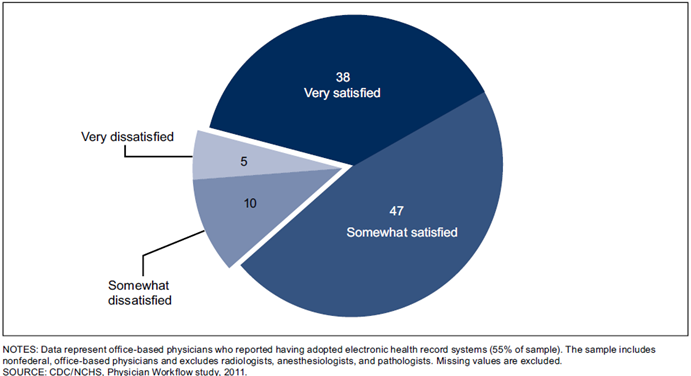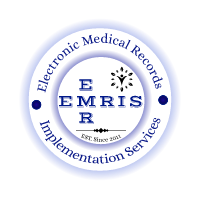Providers who use EHRs report tangible improvements in their ability to make better decisions with more comprehensive information. EHR adoption can give health care providers:
- Accurate and complete information about a patient’s health. This enables providers to give the best possible care, whether during a routine office visit or in a medical emergency, by providing the information they need to evaluate a patient’s current condition in the context of the patient’s health history and other treatments.
- The ability to quickly provide care. In a crisis, EHRs provide instant access to information about a patient’s medical history, allergies, and medications. This can enable providers to make decisions sooner, instead of waiting for information from test results.
- The ability to better coordinate the care they give. This is especially important if a patient has a serious or chronic medical condition, such as diabetes.
- A way to share information with patients and their family caregivers. This means patients and their families can more fully take part in decisions about their health care.
The main goal of health IT is to improve the quality and safety of patient care. The promise of fully realized EHRs is having a single record that includes all of a patient’s health information: a record that is up to date, complete, and accurate. This puts providers in a better position to work with their patients to make good decisions.
EHRs can also flag potentially dangerous drug interactions (to help prescribing doctors explore alternatives before a problem occurs), verify medications and dosages (to ensure that pharmacists dispense the right drug), and reduce the need for potentially risky tests and procedures.
Health care is a team effort. Shared information supports that effort. Patients, their families and providers all benefit when all team members can communicate with each other effectively and efficiently. The Nation’s health and economy benefit as well. Electronic health record (EHR) adoption requires investment of time and money, but the benefits often outweigh the costs, and financial incentives are available to help providers make the transition.
- Over 144,000 payments totaling $7.1 billion have already been issued to professionals and hospitals by the Centers for Medicare and Medicaid Services (CMS)
- An estimated $22.5 billion will be paid from 2011 – 2022 to eligible providers who adopt EHR technology
Embracing EHR Adoption: Some Facts and Figures
Based on a recent study by the National Center for Health Statistics, over two-thirds of EHR adopters would purchase their EHR system again and nearly one-half of physicians currently without an EHR system plan to purchase or use one already purchased within a year.
Percent distribution of electronic health record satisfaction among office-based physicians

